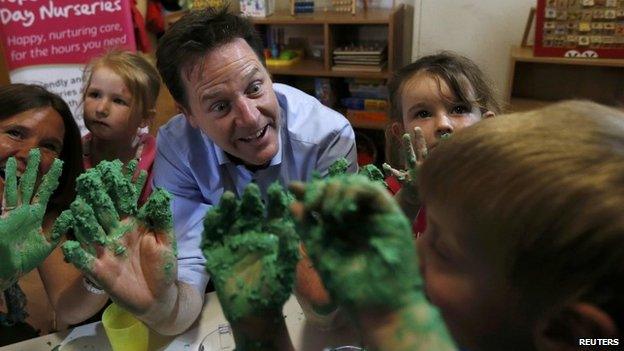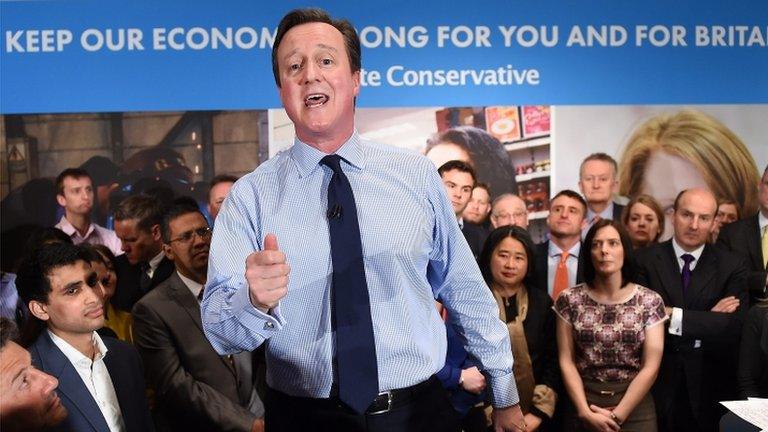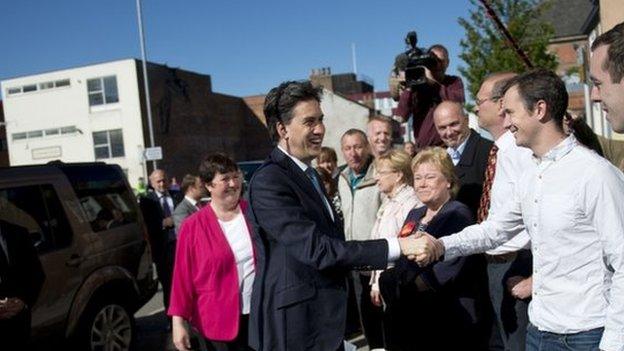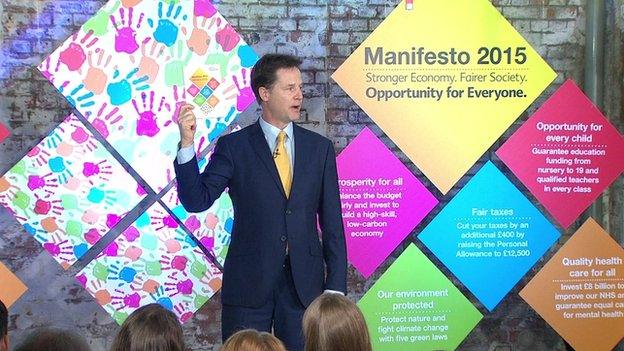Nick Clegg: Education is 'red line' in coalition deal
- Published
Nick Clegg told the BBC's Kamal Ahmed he wants any coalition to guarantee protection for the education system ''from cradle to college''
A pledge to raise education funding in England from £49bn to £55.3bn over the next Parliament is the price of the Lib Dems entering coalition after the election, Nick Clegg has said.
It is the first so-called "red line" that the Lib Dem leader has revealed.
Until now the party has been careful not to set conditions on a deal with either the Conservatives or Labour.
But Mr Clegg told me voters would rightly demand more clarity as the election approaches.
The Lib Dems have said they would spend £2.5bn more than Labour and £5bn more than the Conservatives between 2015 and 2020 on education, protecting funding all the way from early years to further education.
Mr Clegg said what his party call the "cradle to college" pledge would be a "deal-breaker" in potential negotiations with other parties.
There are likely to be further "red line" issues, linked to the Lib Dem manifesto pledges on the NHS and an income tax free allowance of £12,500. It is not clear yet whether Europe and any referendum on possible UK withdrawal is in the mix.
Education is a devolved matter in the UK, so the pledge relates to England only.
Accountability
Mr Clegg, who has claimed neither the Conservatives nor Labour can win an outright victory, said voters would have to remain "in suspense" at least for a few days on what more the party would be demanding.
The Lib Dems believe that by drawing some "red lines", voters can at least hold the party partially to account following the election.

Education funding is one of the Lib Dems' five key election pledges
Mr Clegg said he would "not accept under any circumstances the cuts to nurseries, to schools and to colleges that both Conservatives and now Labour have announced".
"And if we don't get that we wouldn't enter into a coalition in the first place," he continued.
"We are the only party to protect from cradle to college, from nursery to 19-year-olds.
"In pounds and pence - per year - we will be spending £2.5bn more than Labour, £5bn more than the Tories. That is a significant difference."
Of course, any increased spending on education will have to come at the expense of other departments as the Lib Dems have already committed to £12bn of cuts in the first two years of the next Parliament.
'No little brother'
They say they want to protect spending on the NHS, science and overseas aid as well as education. So that could leave departments such as defence - which includes the armed forces - and the Home Office, which includes the police service, vulnerable.
"We are saying we need to find £12bn extra savings from Whitehall departments," he said. "Will that involve difficult decisions? Yes."
Privately, the Lib Dems believe they can win more than 30 seats on 7 May - still quite some crash from the present 56 - and some rather more heady estimates from within the party suggest they "might" win more seats than the Scottish Nationalists.
That could make Mr Clegg a significant kingmaker come 8 May.
He attempted to answer those critics who say that it is difficult to judge the Lib Dems because it is unclear whether they are leaning towards the Conservatives or Labour.
Mr Clegg said that neither was the case, and that the old "left and right" argument about politics was not the point. There were three major traditions in UK politics, he said - left, right and liberal; the centre ground.
"There is a Liberal Democrat tradition that stands on its own two feet. We are not a little brother to the Conservative Party or the Labour Party."
He said the Liberal Democrats were an independent party which found the right balance between a strong economy and investing in public services.
Of course, pledges on education can be a little toxic for the Liberal Democrats and Mr Clegg.
They had one before the 2010 general election. On tuition fees. It didn't last very long.
- Published27 April 2015

- Published27 April 2015

- Published15 April 2015
